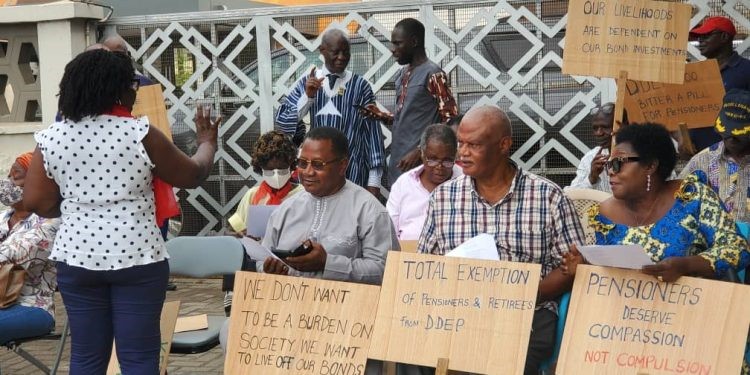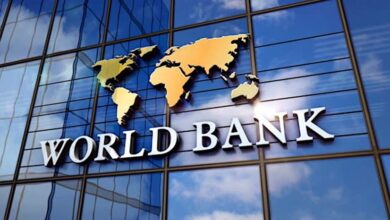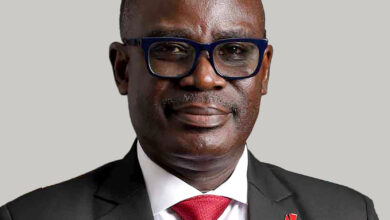GH¢12bn paid to bondholders under DDEP

Government says it has paid approximately GH¢12 billion to bondholders under its Domestic Debt Exchange Programme (DDEP) since February, demonstrating its commitment to the programme aimed at restoring and stabilizing the country’s economy.
The DDEP, launched in December 2022, was designed as a critical component of Ghana’s broader economic recovery strategy. The programme aimed to restructure the country’s unsustainable debt levels, which had escalated due to a combination of fiscal imbalances, the impact of the COVID-19 pandemic, and external economic shocks. Ghana’s public debt had surged, leading to debt distress, shrinking international reserves, and rising inflation.
In an effort to restore macroeconomic stability, the government introduced the DDEP, inviting domestic bondholders to exchange their existing bonds for new ones with different terms, including extended maturity periods and adjusted interest rates. The goal was to reduce the government’s immediate debt servicing costs and create fiscal space for economic recovery and growth.
Since the programme’s inception, government had taken significant steps to honour its commitments under the DDEP but not without protests from some bondholders whose coupons had matured but payment had delayed. The disbursement of GH¢12 billion to bondholders is a clear indication of the government’s dedication to fulfilling its obligations and maintaining investor confidence. This payment is expected to bolster trust among bondholders and financial institutions, crucial for the program’s success.
Finance Minister Dr. Mohammed Amin Adam highlighted the significance of the payments, noting that they reflect the government’s unwavering commitment to the DDEP and its broader economic recovery agenda. He emphasized that the government is focused on ensuring financial stability and creating a conducive environment for sustainable economic growth.
The DDEP is part of a larger suite of reforms supported by international financial institutions, including an International Monetary Fund (IMF) Extended Credit Facility (ECF) program approved in May 2023 and the World Bank’s Development Policy Operations. These reforms include fiscal consolidation measures, structural reforms, and a comprehensive debt restructuring program aimed at reducing Ghana’s debt-to-GDP ratio to sustainable levels.
Despite the progress made, the economic crisis has adversely impacted poverty reduction efforts. Weak economic growth and constrained government spending have affected living standards, with poverty levels (measured at the international poverty line of US$2.15 a day) estimated to reach 30.3 percent in 2023, an increase of 3.5 percentage points since 2022. Projections indicate a further deterioration to 33.2 percent by 2025.
The government remains committed to addressing these challenges through ongoing policy adjustments and economic reforms. In addition to the DDEP, efforts are being made to enhance revenue mobilization, streamline public expenditures, and foster an environment conducive to private sector growth and investment.
The successful implementation of the DDEP and other economic recovery measures will be crucial in restoring macroeconomic stability, reducing poverty, and achieving sustainable development goals. The government’s ongoing engagement with domestic and international stakeholders will play a vital role in ensuring the effectiveness and sustainability of these efforts.
Background
Ghana has faced significant economic challenges in recent years, with public debt reaching unsustainable levels due to a combination of internal and external factors. The COVID-19 pandemic exacerbated the situation, leading to increased government spending on health and social interventions, while revenue collections were adversely affected.
In response to the mounting fiscal pressures, the government launched the Domestic Debt Exchange Programme (DDEP) in December 2022 as part of a comprehensive strategy to restructure the country’s debt and restore economic stability. The program aimed to reduce the government’s immediate debt servicing burden by exchanging existing bonds for new ones with longer maturities and different interest rates.
The DDEP has been supported by international financial institutions, including the IMF and the World Bank, which have provided financial and technical assistance to Ghana as part of its economic recovery efforts. The government’s commitment to the DDEP and other reform measures is crucial for rebuilding investor confidence, stabilizing the economy, and laying the foundation for sustainable growth and development.
As Ghana continues to navigate its economic recovery, the successful implementation of the DDEP and other reforms will be essential in achieving long-term fiscal sustainability, reducing poverty, and improving living standards for its citizens.




